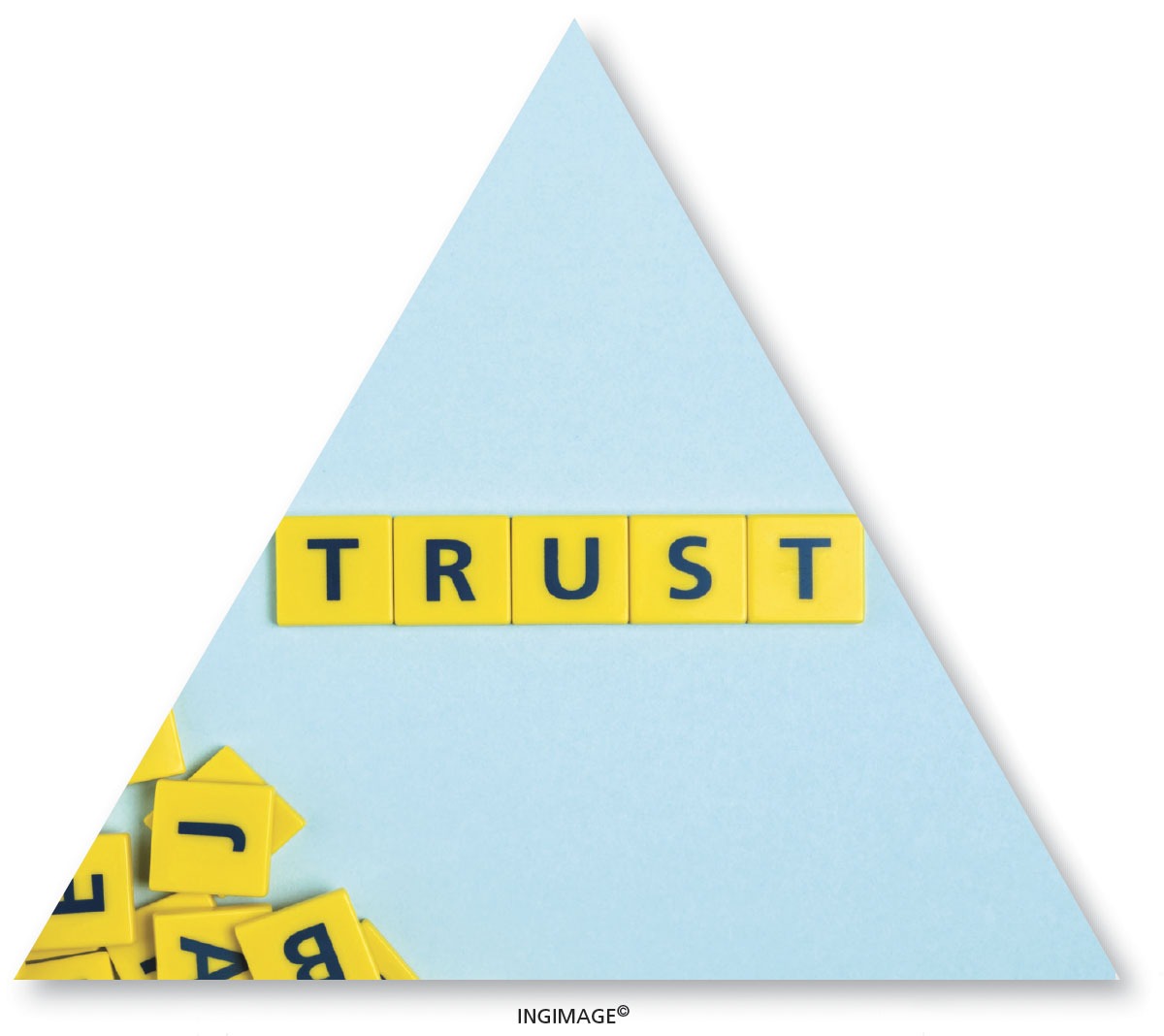LEADERSHIP LESSONS
It is claimed that Roman emperor and philosopher Marcus Aurelius once said: “Love all, trust a few, do wrong to none… Everything we hear is an opinion, not a fact. Everything we see is a perspective, not the truth.”
In business and life, trust requires careful consideration.
THE FACETS OF TRUST
Learn to judge people before trusting them by Jayashantha Jayawardhana

Even business leaders who seek to stick to the facts in their search for the truth rarely find raw facts. All types of business decisions based on unreliable information can be mistaken for the truth and undermine an organisation’s progress.
In the fall of 2003, then US President George W. Bush made headlines by belittling the media when he told a Fox Television journalist that he insulated himself from media reports because they’re tainted by opinions, adding that he preferred to get his news from ‘objective sources’ who would most probably be his staff.
Though it sounds ludicrous, Bush’s opinion suggests that a paradox lies at the heart of our misconceptions about trust. He seemed to associate it with objectivity, which is only partially correct because objectivity may not necessarily coexist with professional independence.
According to an article titled The Geography of Trust, written by US business consultant Saj-nicole Joni and published in the Harvard Business Review (HBR), it’s upon this assumption that many careers foundered.
Many of us tend to believe that trust stems from affinity and esteem. While this is certainly the case in personal relationships, in a business context competence is crucial to trust.
To borrow a reference from Shakespeare’s Julius Caesar, it wasn’t enough that Brutus was an honourable man; he also needed to be an honourable man who knew his way around a balance sheet.
Joni observes that “in the early stages of careers, trust based on integrity and capability is woven into the bonds that nascent leaders forge, as they labour shoulder-to-shoulder with colleagues on project teams and planning committees. But as individuals rise through the organisational ranks, their trust of others changes in response to their relative status, competition for projects or promotions, politics etc.”
“At higher levels, it’s no longer enough to ask who a trusted source is; it’s also necessary to ask who he is in relation to me?” she adds.
To make sound business decisions, a leader needs informed and objective advice from sources committed to his or her success but who have little personal stake in it. Such advisers are in positions of high structural trust.
Structural trust is eroded by changes in professional rather than personal relationships.
Here’s how it happens…
A peer may become a direct report; a colleague might move to another department vying for the same limited budget. Such shifts may go unnoticed by the leader especially when they result from his or her own momentum.
As Joni says, “trust becomes a habit, unexamined and impervious to context. Meanwhile, conflicting interests, emerging loyalties, parochialism and personal ambition gradually diminish the usefulness of established ties.”
The higher leaders rise, the more impact their decisions have on larger numbers of people and the company’s direction. They then need advisers who can be counted on to provide a full and frank exchange of opinions.
As their portfolio of responsibilities also expands, they need to consult with an increasingly broader range of trusted advisers. Ironically, the growing power of these leaders makes perfectly candid advisers exceedingly difficult to find.
Joni notes that while leaders do have friends, their power expands even as the interest those friends had in them increases. The more interested those friends become, leaders should cease to rely solely on their counsel.
Constantly banking on the same coterie of internal advisers or being paranoid and trying to manage everything alone are equally unsound approaches – this could seriously hurt both the organisation and the leader’s career.
Instead, a savvy leader must carefully consider the possible consequences of each of these extreme courses and cultivate a more sophisticated understanding of how trust really works in the corporate environment – and how to find candour therein.
An important extension of this is to understand the different types of trust: personal, expertise and structural (as Joni labels them).
Of these types of trust, personal trust is based on faith in a person’s integrity. It’s personal trust that we mean almost every time we say we trust or don’t trust someone.
Expertise trust is the reliance on an adviser’s ability in a specific discipline. And structural trust reflects how roles and ambitions colour insights and spin information.
Therefore, a leader must understand that trust is mutable and conditional, and remains multidimensional rather than being uniform.





